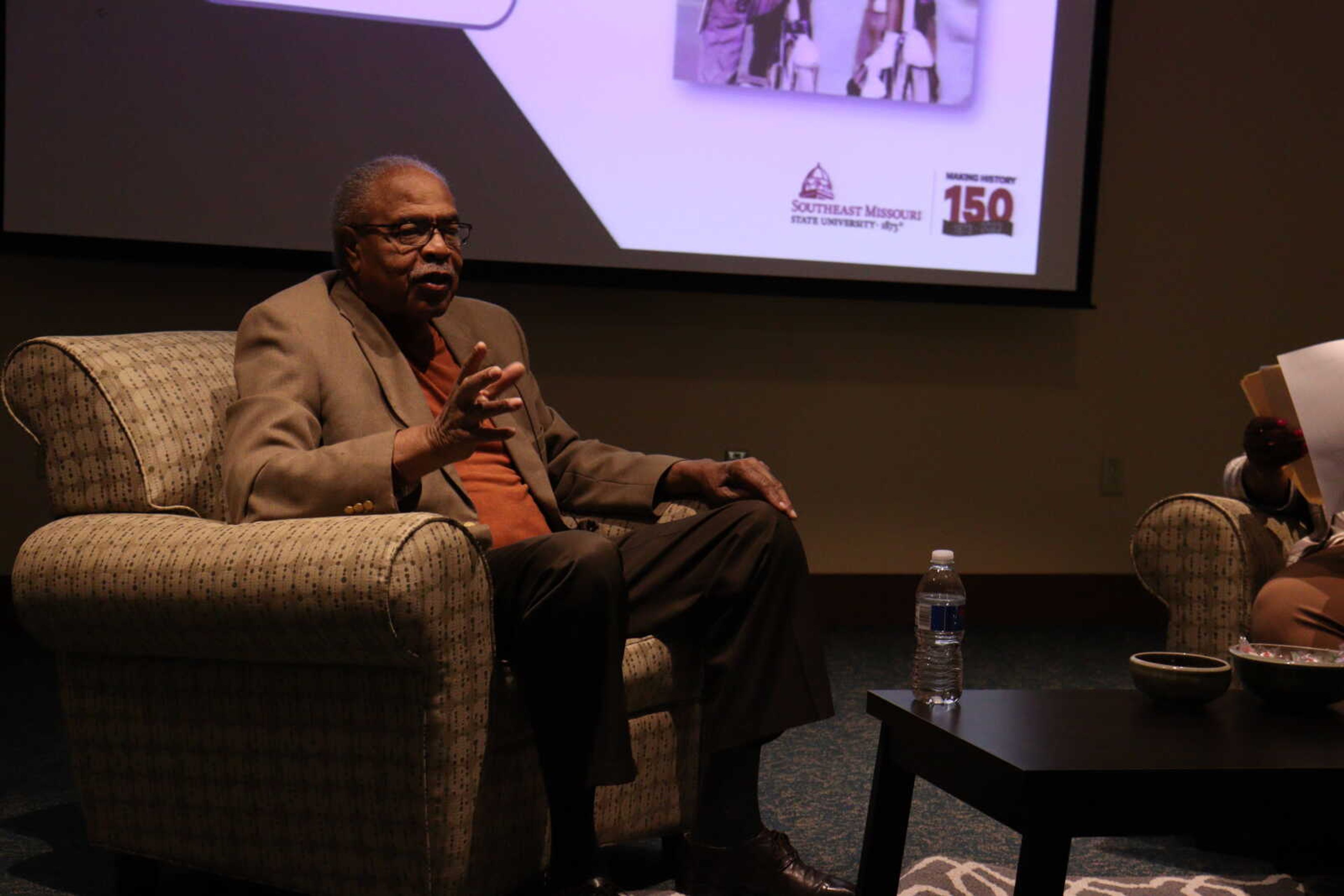SEMO prepares for a shifting future of diversity on campus
Telling the stories of those who have experienced history first-hand is a part of the journey of diversity. For students at Southeast Missouri State University, they had a chance to hear about the Emmett Till Project held April 12 and 13 and the events that unfolded surrounding Till’s murder...
Telling the stories of those who have experienced history first-hand is a part of the journey of diversity. For students at Southeast Missouri State University, they had a chance to hear about the Emmett Till Project held April 12 and 13 and the events that unfolded surrounding Till’s murder.
The Reverend Wheeler Parker Jr., cousin to Emmett Till and guest speaker for the Emmett Till event, said the reason he has continued to tell this story is so it is not forgotten and so the fight for progress can continue.
“Progress is not a pleasant story,” Parker said. “[Emmett Till] and I traveled south together, and I came back without him. So, it's still kind of a popular story, but not super public, but it resonates with people.”
Through Parker’s work and the story he has told, he has helped created two separate legislations: One is the Emmett Till antilynching act, which makes lynching a federal hate crime. The second was the Emmett Till Unsolved Civil Rights Crime Act, which sought to provide the resources and funding necessary to investigate civil rights cold cases that had been left unsolved for decades.
Though Parker’s work has impacted the whole of the United States, the small impacts left behind by telling his story help shape progress and diversity by creating conversation.
Dean of the College of Humanities and Social Sciences Eric Bain-Selbo said part of what makes events like the Emmett Till Project and diversity initiatives important is the ability for students to experience the entirety of America.
“Part of being a university, at least in some part, is providing students with the opportunity to learn about the breadth of the experience of our country and our world, and that’s just necessarily diverse,” Selbo said. “We would be doing a disservice, it seems, to our students if we didn’t provide them with that diversity.”
A roadblock in the form of a Missouri Bill, however, was introduced that may impact the future of diversity.
On Mar. 27, Missouri House Bill 1196 passed through the House of Representatives. According to FastDemocracy, the bill seeks to prohibit the teaching of "discriminatory ideology," which is defined as the differential treatment of any individual or group of individuals based on characteristics of race, color, religion, sex, gender, sexuality, ethnicity, national origin or ancestry.
While the future of the bill is yet to be known, Selbo said the time for having tough conversations will always have a place on campus.
“If we can’t have a diversity of voices grappling with our nation’s problems on a college campus, where in the world can we have those conversations?” Selbo said. “Our university needs to be the place where we have tough conversations. If the state legislature comes forward with something, whatever it may be, it should be fair game for that conversation.”
For professors at SEMO, the work has long been underway. Director of the Department of Criminal Justice, Social Work & Sociology Shay Cecil said she already integrates the story of people like Parker into her own program.
“I teach our social, culture and diversity class, and that class gets very personal about seeing the injustices we see in our society,” Cecil said. “So, having the conversation of how this is personal is something we use in the curriculum.”
Cecil said getting the community involved and having speakers of all backgrounds opens the door for diversity.
“We’ve been in conversation about who we want to have to be more inclusive and shedding light on how to bring justice to light,” Cecil said. “[Parker] is very busy, but we would love to have more speakers like them on campus and in Cape Girardeau, and having that exposure would be great.”






